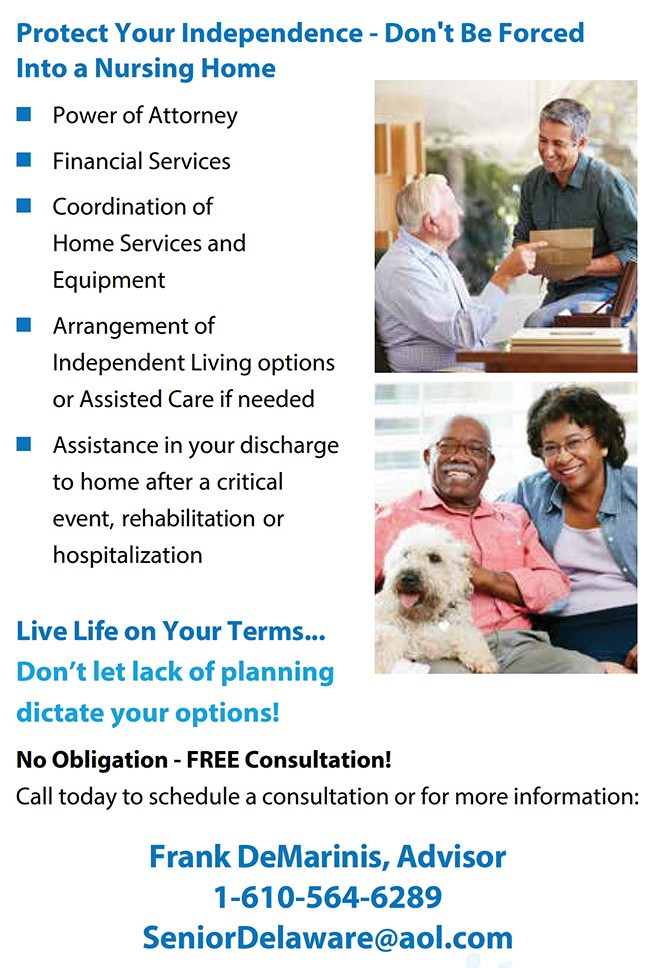When There Is No Family To Help
When we discuss the “What If,” and surmount the already emotional and difficult decision process of advance directive and estate planning, an even more difficult question with many seniors arises: “What if you don’t have a family?”
This month’s success story is a gentleman hospitalized for renal insufficiency. After the acute crisis was over, he could not return home. Now in a wheelchair unable to traverse steps without basic advocacy, he could not facilitate a plan for accommodation of a ramp. During his lengthy stay in the hospital, due to lack of response to a Social Security Inquiry and a fraud alert on his bank account, his funds were frozen. Due to lack of bill pay, his supplemental insurance as well as cell phone were cancelled. He was discharged temporarily to a homeless shelter and unfortunately re-hospitalized within 48 hours. He was confined for over 120 days in acute care for lack of family surrogacy. Thankfully he maintained capacity and was able to secure our assistance. We were able to navigate discharge to short-term rehabilitation and an appropriate senior residence, while his property was sold.
Not everyone has someone available to carry out one’s wishes or make decisions. It is a systemic issue of an Aging America. Over fifteen years ago The American Bar Association’s Commission on Law and Aging looked into this problem and cited 4 percent of older adults are “the unbefriended elderly,” a disconcerting phrase referring to those who can’t make decisions for themselves, have no advance directive or surrogate decision maker, and have no family or friends able to assist. Today that trending concern has reached greater proportion. Today we refer to that growing generation as the “elder orphans” of the baby boomer generation. Based on U.S. Census data, about one third of Americans age 45 to 63 are single, and in a position to become orphans as they age. About 22% of Americans 65 years and older are in danger of becoming, or already are, in this situation.
Even if one has written advance directives, someone has to bring those documents to the attention of medical personnel. In the absence of family, a friend or neighbor, an independent professional such as an elder lawyer or geriatric care manager may sometimes assist, but are often reluctant to shoulder the burden. Being someone’s surrogate means being willing to drop everything when a crisis strikes, and to continue monitoring when a client is hospitalized or needs long-term care. Courts can appoint legal guardians or conservators for incapacitated seniors, and guardians — but most seniors don’t want to relinquish their autonomy in that way.
Senior Advisors of Delaware, LLC is a case management solution-based alternative. They are an agency providing money management, consultation, health planning and Power of Attorney services for seniors living alone or caring for a spouse with an incapacitating condition(s) such as Alzheimer’s. The non-profit program launch “Advanced Directive” helps women safely age at home or with the spouse they are caring for in case of emergency. Their partnership with the Delaware Health Network helps alert in an emergency so that surrogacy response can be made in a crisis.
The Stay At Home Grant Program is a specific program-based grant initiative specifically for seniors who independently live in the community and are medically at risk for hospitalization and or nursing care. Participants and applicants for the 2019 grant are not disqualified if they maintain finances (may own a home if considered homebound, at risk or needing some level of care assistance). The program initiative goals are to show surrogacy and POA response may reduce unnecessary nursing home confinement. Applicant approvals are on a rolling quarterly basis for this calendar year.
1-800-564-0173



